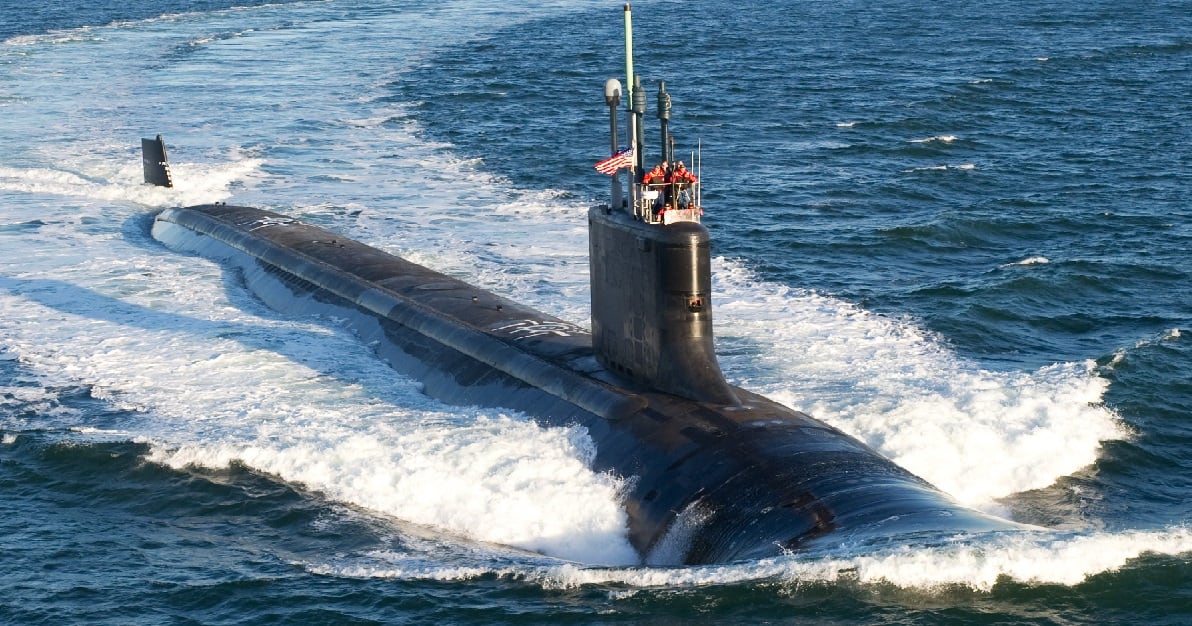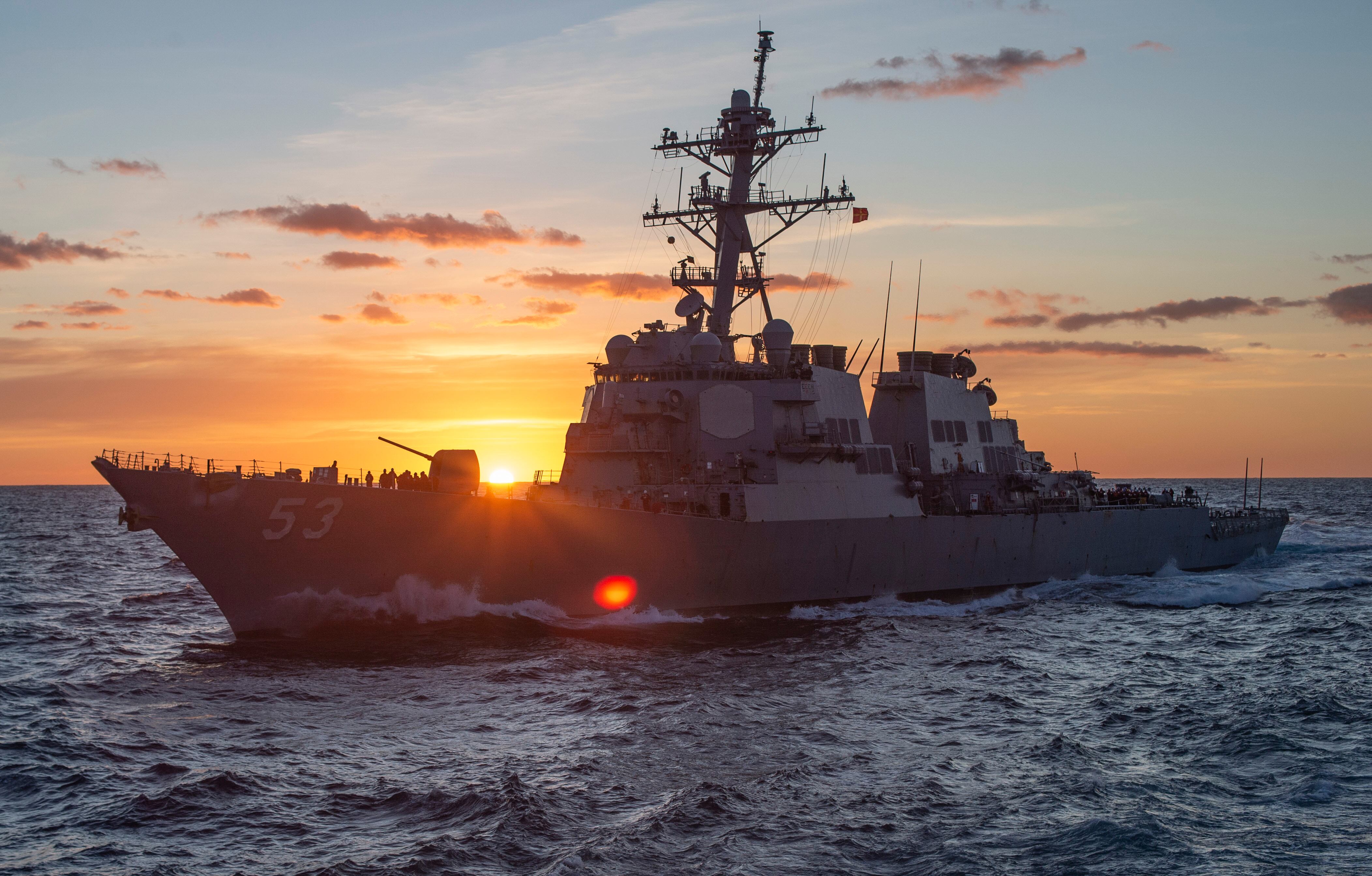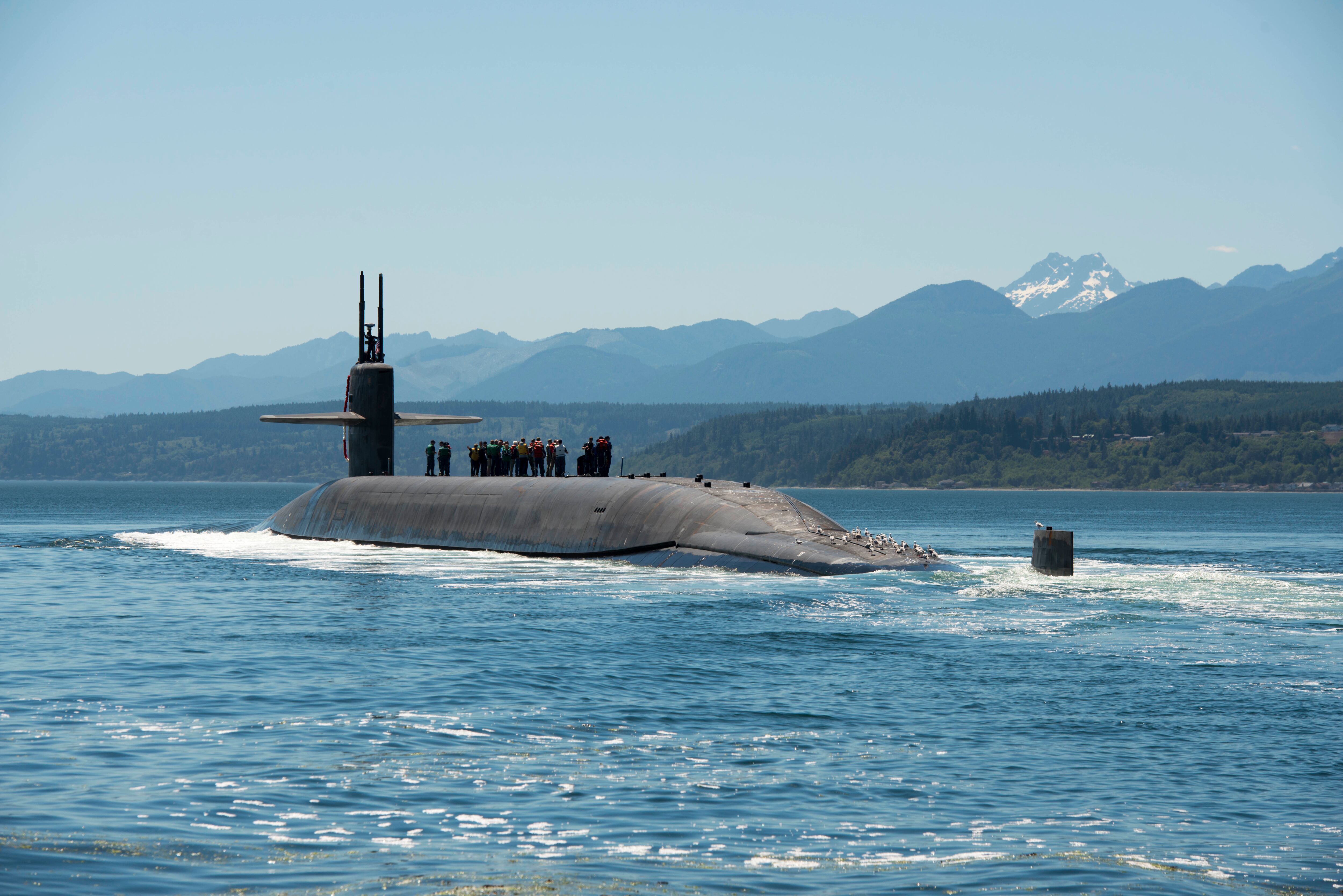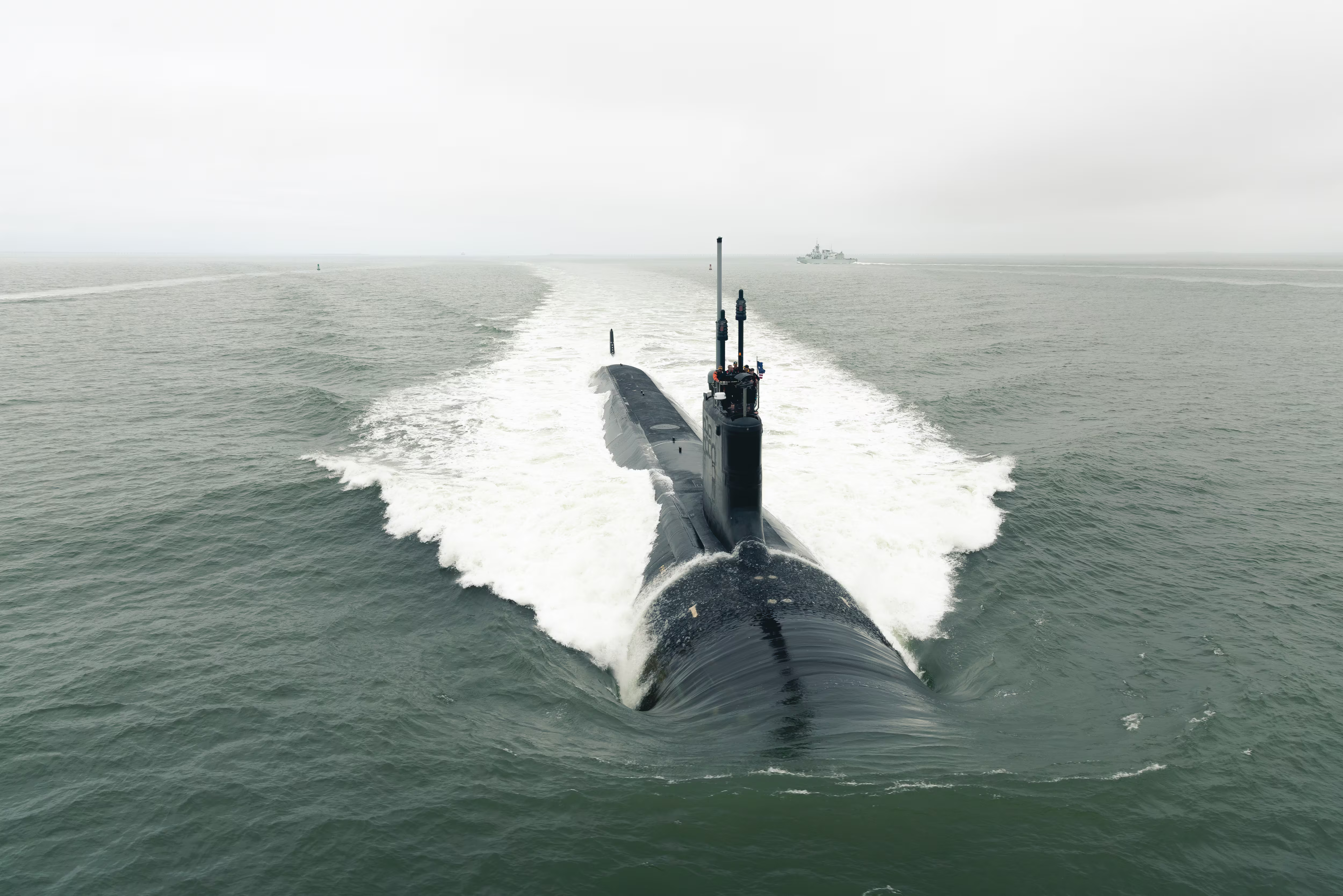MUNICH and WASHINGTON — Lawmakers are lining up to slam the U.S. Navy’s fiscal 2021 budget submission, saying it calls for a significant cut to shipbuilding and slows the fleet’s rate of growth over the next five years.
A bipartisan group of 17 senators is warning the Navy that its decision not to seek a second Virginia-class submarine in the FY21 budget proposal would contradict the National Defense Strategy, weaken the defense-industrial base and compromise Navy readiness.
It’s the latest sign the U.S. Navy’s proposed shipbuilding budget is experiencing a bow wave of congressional backlash ― particularly over its decision not to seek a 10th Block V submarine. Given the bipartisan outrage at shipbuilding cuts, it appears likely that major changes to the Navy’s budget are in store once Congress gets its hands on it.
The letter protesting the cut sent to Navy Secretary Thomas Modly was drafted by Sen. Richard Blumenthal, D-Conn., and was signed by the Senate Armed Services Committee’s top Democrat, Sen. Jack Reed, D-R.I., and Republican Sens. Lindsey Graham of South Carolina, Marco Rubio of Florida, Josh Hawley of Missouri, and Roger Wicker of Mississippi.
Click here to view the entire letter.
Recent budgets have funded at least two Virginia-class submarines per year ― and for 2020, Congress added $200 million in advance procurement for a 10th.
“Fast attack submarines will help ensure our asymmetric advantage and undersea superiority during a potential conflict with near-peer adversaries, and investment in the Virginia Class program is an indicator of progress toward countering Russian and Chinese aggression,” the letter read, adding that a delay would contribute to “supplier instability.”
RELATED

The Navy in December awarded a $22.2 billion contract to General Dynamics for the construction of nine Virginia-class submarines. General Dynamics Electric Boat, based in Groton, Connecticut, with facilities in nearby Quonset Point, Rhode Island, was the main contractor, and Huntington Ingalls Industries, based in Newport News, Virginia, was the main subcontractor.
Those states and others were well represented in Blumenthal’s letter. It was also signed by Sens. Chris Murphy, D-Conn.; Jeanne Shaheen, D-N.H.; Tammy Baldwin, D-Wis.; Sheldon Whitehouse, D-R.I.; Krysten Sinema, D-Ariz.; Maggie Hassan, D-N.H.; Mark Warner, D-Va.; Bob Casey, D-Pa.; Tim Kaine, D-Va.; Sherrod Brown, D-Ohio; and Mazie Hirono, D-Hawaii.
In an interview earlier in the week, Blumenthal echoed an accusation that the Trump administration used the sub’s funding to boost the nuclear weapons budget, which was first leveled by House Seapower and Projection Forces Subcommittee Chairman Joe Courtney, D-Conn.
“They’re using the Navy as a kind of piggy bank to fund other programs, and that’s very dangerous to our national security,” Blumenthal said.
Earlier in the week, Courtney called the shipbuilding budget request for eight ships “dead on arrival” and said it fails to support the administration’s goal of a 355-ship Navy.
“This weak, pathetic request for eight ships — of which two are tugboats — is not only fewer ships than 2020, but fewer ships than the Navy told us last year it planned for 2021,” Courtney said in a statement Monday.
RELATED

Courtney joined with the subpanel’s top Republican, Rep. Rob Wittman of Virginia, to request the Navy’s 30-year shipbuilding plan by the end of the month ― and a written update on the status of the Navy’s long-awaited force structure assessment.
On Wednesday, the House Armed Services Committee’s top Republican, Rep. Mac Thornberry of Texas, voiced similar concerns but also touted the idea of a special fund for the Columbia-class submarine, which has eaten up much of the Navy’s FY21 shipbuilding budget. (Appropriators are not on board with the idea, he noted.)
“We need more ships, and eight ships a year is clearly not enough,” Thornberry told reporters.
In a column this week in The Hill, Wittman cited China’s attempts to grow as a sea power as reason for the U.S. to build a 355-ship Navy.
“The bottom line is that China is investing monumental amounts in its naval force — further indicating that we have entered into a full-scale strategic competition,” Wittman said. “These buildups and expansions have the potential to challenge U.S. maritime leadership in critical parts of the world. A bigger Navy would help advance our interests in this emerging maritime security environment.”
Wicker has introduced legislation called the SHIPS Implementation Act, which proscribes a shipbuilding plan for the Navy. If passed, the Navy would be bound to procure 39 new ships over the next five fiscal years.
Not every lawmaker is convinced of the need for a 355-ship Navy. Senate Seapower Subcommittee Chairman David Perdue, R-Ga., on Tuesday questioned whether that goal supports the National Defense Strategy — a question he plans to ask Pentagon leadership.
Asked whether the FY21 request supports that goal, he demurred. “You’re looking at one year’s budget. You have to almost look at a 10-year plan. The 355, I think that’s over the next 30 years,” Perdue said. “I haven’t really been through this president’s recommendation yet, but I do have the concerns that the allocation of the budget over the next 10 years support the NDS.”

Columbia questions
That this has become an issue for the Navy in 2021 is unsurprising. The service has warned for years that its shipbuilding budget would be adversely impacted by the next-generation Columbia-class ballistic missile submarine, the first of which is being funded this year.
The first boat is going to cost the Navy $14 billion over three years, and the whole 12-ship class will cost in excess of $109 billion.
Successive generations of senior Navy leaders have argued that the service should not bear the sole burden for the Columbia-class bill, since it is part of the national strategic deterrent. But Defense Secretary Mark Esper, in an exclusive interview with Defense News, said the Navy will be on the hook for Columbia just like the Air Force is for bombers and Ground Based Strategic Deterrent missile system.
“Clearly the Columbia is a big bill, but it’s a big bill we have to pay,” Esper said. “That’s the Navy’s bill. The Air Force has a bill called bombers and Ground Based Strategic Deterrent, so that’s a bill they have to pay.
“We all recognize that. Acting Secretary [Thomas] Modly and I have spoken about this. He believes, and I think he’s absolutely correct, that there are more and more efficiencies to be found within the [Defense] Department, the Navy and the Marine Corps, that they can free up money to invest into ships, into platforms.”
RELATED

But in comments to USNI News, Thornberry said he disagreed with that view, and said lawmakers made it clear that they’d like Columbia paid for outside the shipbuilding account.
“On a bipartisan basis, we still think what we thought, and that is: If this is really the most important thing to defend the country and the top mission priority of the Department of Defense, then we ought to look at some sort of separate funding line," Thornberry told USNI. We shouldn’t have to make those difficult choices."
In a letter to Mark Esper in January, Courtney echoed this call, saying that the Defense Department needed to look again at Congress’ sea-based strategic deterrent fund, which was set up in 2015 to give the DoD a way to pay for Columbia from across the enterprise, not just from shipbuilding.
“Given the fact that over 70 percent of the nation’s nuclear deterrent will be deployed on Columbia-class submarines for forty years or more, this ‘once in a multi-generational’ expense should not be disproportionately borne by one branch of the military,” Courtney wrote.
In it’s FY21 budget request, the Navy said the fund would be used to pay for Columbia, but all the money was coming from Navy shipbuilding.
Joe Gould was the senior Pentagon reporter for Defense News, covering the intersection of national security policy, politics and the defense industry. He had previously served as Congress reporter.
David B. Larter was the naval warfare reporter for Defense News.








